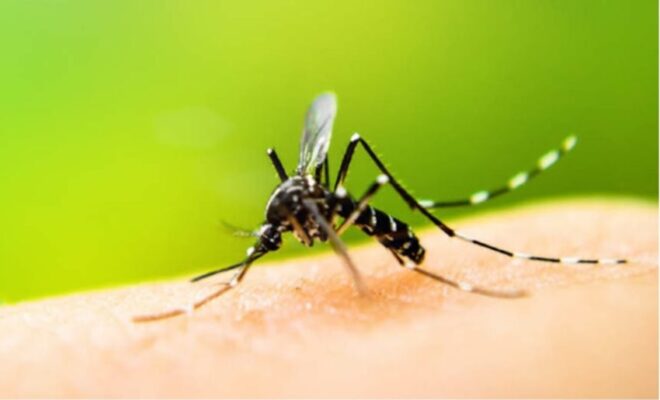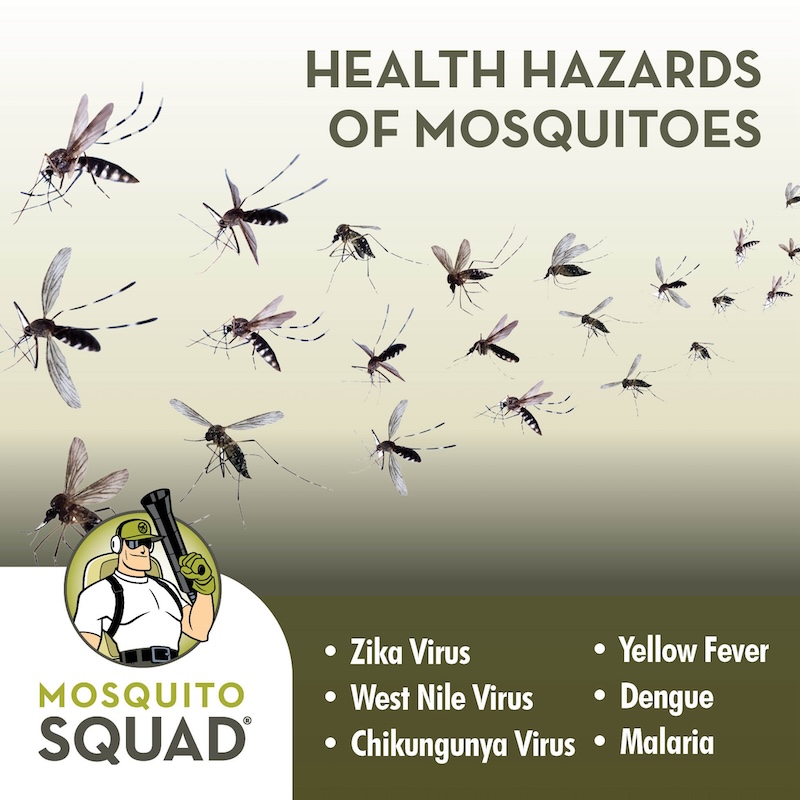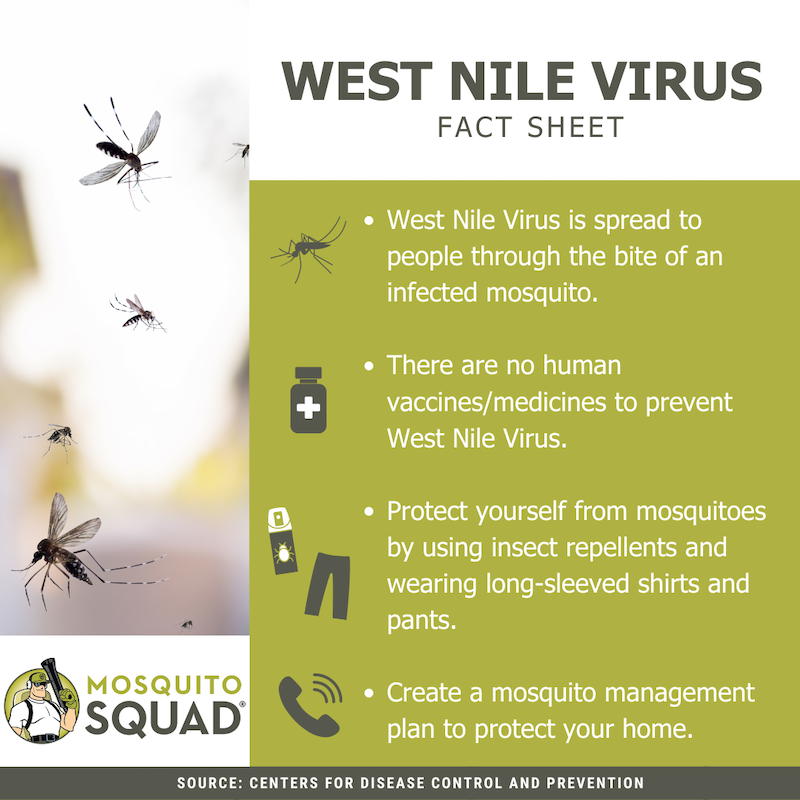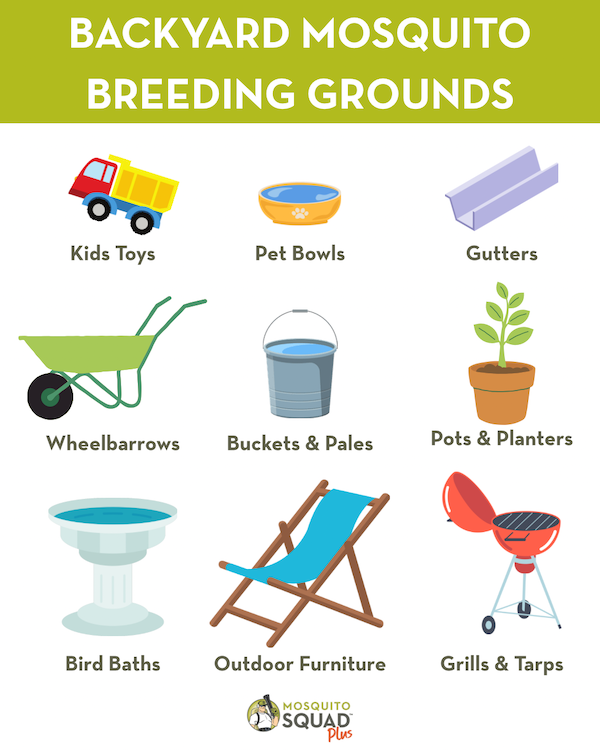
Home & Garden
What is West Nile Virus? Mosquito Squad shares Things To Know and Prevention Tips
West Nile Virus is the most common mosquito-borne disease in the continental United States and is most commonly spread to people by the bite of an infected mosquito (Source: CDC). On June 20, the first positive case of human West Nile virus in eastern Harris County was reported by Harris County Public Health.
Mosquito Squad shares information below on what West Nile Virus (WNV) is, how to prevent it, and what the symptoms and treatments are crucial in protecting you and your family.
Why Do Mosquitoes Bite?
Female mosquitoes bite humans and animals to obtain the necessary proteins for egg development. Male mosquitoes don’t bite and instead feed on plant nectar. When a female mosquito bites, she pierces the skin with her proboscis and injects saliva into her victim to prevent blood clotting. This is what causes the itching and swelling around a mosquito bite.
How Do Mosquitoes Transmit Diseases?
When a mosquito bites you, it injects a small amount of anticoagulant and saliva into your blood. That’s how infected mosquitoes – those carrying an infectious virus in their gut – can pass the virus to the birds, humans, and other mammals they bite. Mosquitoes get infected and transmit diseases after they feed on the blood of a mammal that is already infected. This puts the infection in the mosquito and then infects any other mammal bit by the same mosquito.
What are the odds that a mosquito that bites you is infected? Well, in areas where mosquitoes carry West Nile virus, for example, about 1 out of 500 mosquitoes are infected.
The good news is that being bitten by a mosquito that carries West Nile doesn’t mean you’ll contract the disease. In fact, scientists believe that only 0.3% of bites from infected mosquitoes transmit West Nile to the bitten human, cow, or crow. In other words, if bitten by a mosquito carrying West Nile virus, the chance of a person developing the illness is roughly 1 in 300.
Common Diseases Transmitted by Mosquitoes
Mosquitoes are notorious for transmitting serious diseases, including malaria, dengue fever, Zika virus, and West Nile virus. These diseases can lead to severe health complications, including encephalitis, meningitis, and microcephaly.
Originating from the bird-biting mosquito species Culex, West Nile is the most common virus spread by mosquitoes in the continental United States.
West Nile virus causes encephalitis (inflammation of the brain). However, according to the CDC, about 80 percent of those who have a mosquito bite with West Nile Virus show no symptoms at all. The largest outbreak of West Nile ever recorded in North America was in 2002, with 4,156 people infected. Read more
PREVENTION OF WEST NILE VIRUS
West Nile Virus is carried by mosquitoes feeding on infected birds, which then is spread to people when bitten. When considering how best to protect around your home, prevention must first start with tossing and tipping any stagnant water that may become a breeding ground for mosquitoes. By eliminating stagnant water around your home, you help control mosquitoes that maybe carrying the virus.
When outside, wear mosquito repellent, long sleeved shirts, and pants, misting clothing as well as exposed skin. When applying insect repellent to your child’s face, first mist into your hands and then place onto your child’s face, remembering to avoid their eyes and mouth.
If you decide to travel overseas, make sure to choose a hotel or lodge with air conditioning or windows with screens. Buy mosquito nets that have been treated with Permethrin and that are World Health Organization Pesticide Evaluation Scheme (WHOPES) approved, but do not wash them—this causes the insecticide to break down.
SYMPTOMS OF WEST NILE VIRUS
Please note: Mosquito Squad are experts at helping control or eliminate mosquitoes, not medical care. Please always consult your healthcare team for any specific questions about WNV or symptoms.
Most individuals infected with WNV in America may not always have symptoms that would cause an individual to have concerns; some who are infected sometimes show no symptoms at all. One in five people who are infected develop a fever with other symptoms such as headache, body aches, joint pains, vomiting, diarrhea, or rash. Only 1 of 150 people develop a severe illness affecting the central nervous system (encephalitis). The incubation period after the initial mosquito bite falls between 3 to 14 days.
WEST NILE VIRUS TREATMENT
For now, there are no vaccines or specific antiviral treatments for WNV infection. To alleviate any pain or minor symptoms such as headaches, body aches, or joint pains, buy over-the-counter pain relief treatment. For severe conditions, hospitalization may be necessary for supportive treatment, IV fluids, pain medication, and nursing care.
Mosquito Squad not only treats your yard by creating a barrier that lasts for 21 days, but they also educate customers with the 7 T’s of Mosquito Control. These are the 7 steps you should take to keep your backyard as free of mosquitoes as possible.
- Tip: Tip over any standing water
- Toss: Excess grass and firewood
- Turn: Turn over large items – bird baths, plastic toys, and portable sandboxes
- Tighten or Remove Tarps
- Take Care: Keep grass cut and gutters cleared
- Team Up: Team up with your neighbors to help control mosquitoes by educating them as well
- Treat: Treat your yard by calling Mosquito Squad today for your free estimate
To find out how to help further reduce mosquitoes, ticks, and other pests from your yard, contact Mosquito Squad at (713)597-4202 or visit MosquitoSquad.com. Mosquito Squad of Houston has strategies and plans for managing mosquito activity around your home to help ensure a safer, more pleasant summer outdoors. And, be sure to ask about Mosquito Squad’s barrier treatment, which helps eliminate up to 85 – 90% of mosquitoes on a property. Mention HELLO WOODLANDS to receive $100 OFF your full season mosquito control plan. Limited Time Only!
Source: Mosquito Squad



























